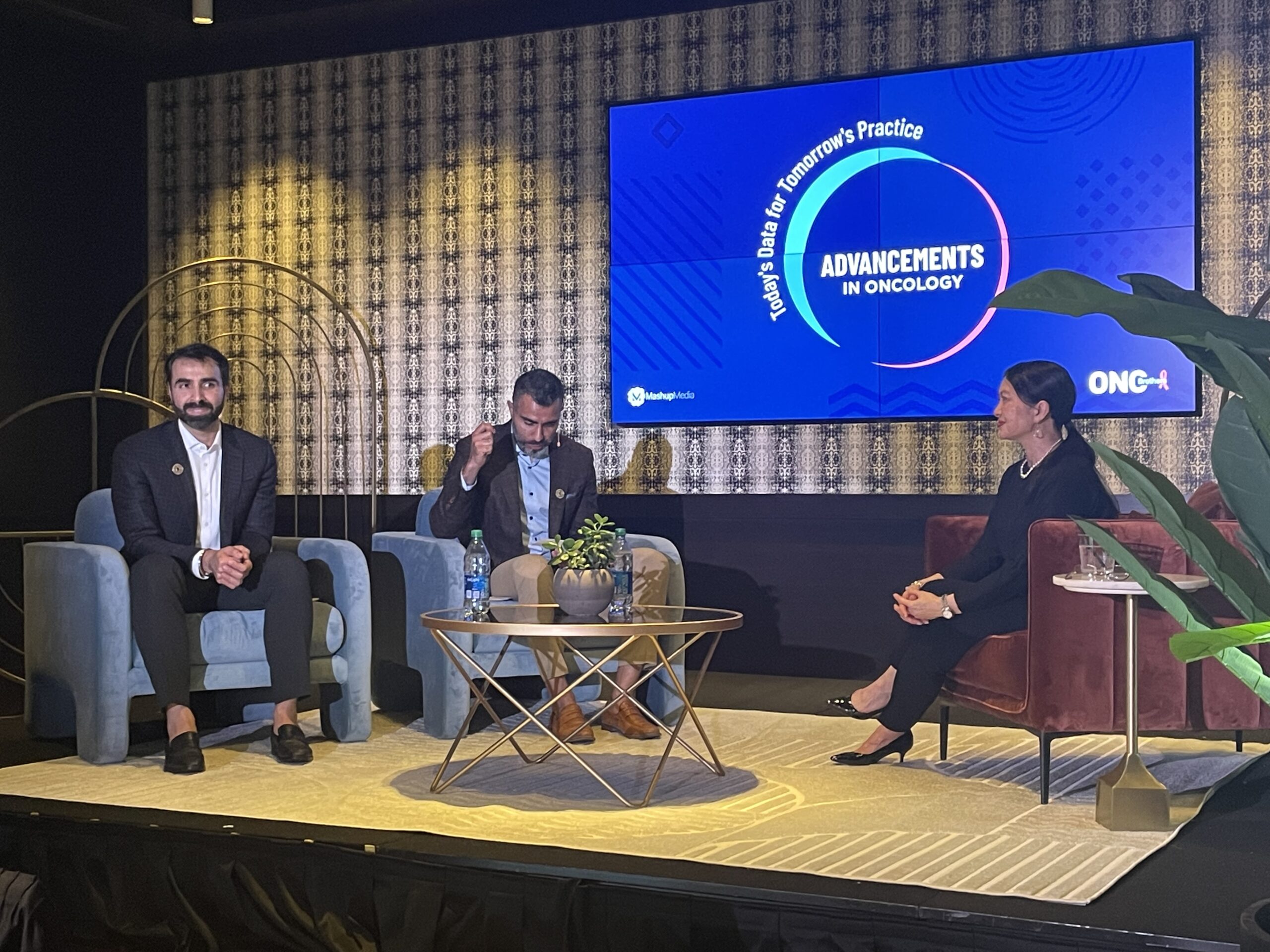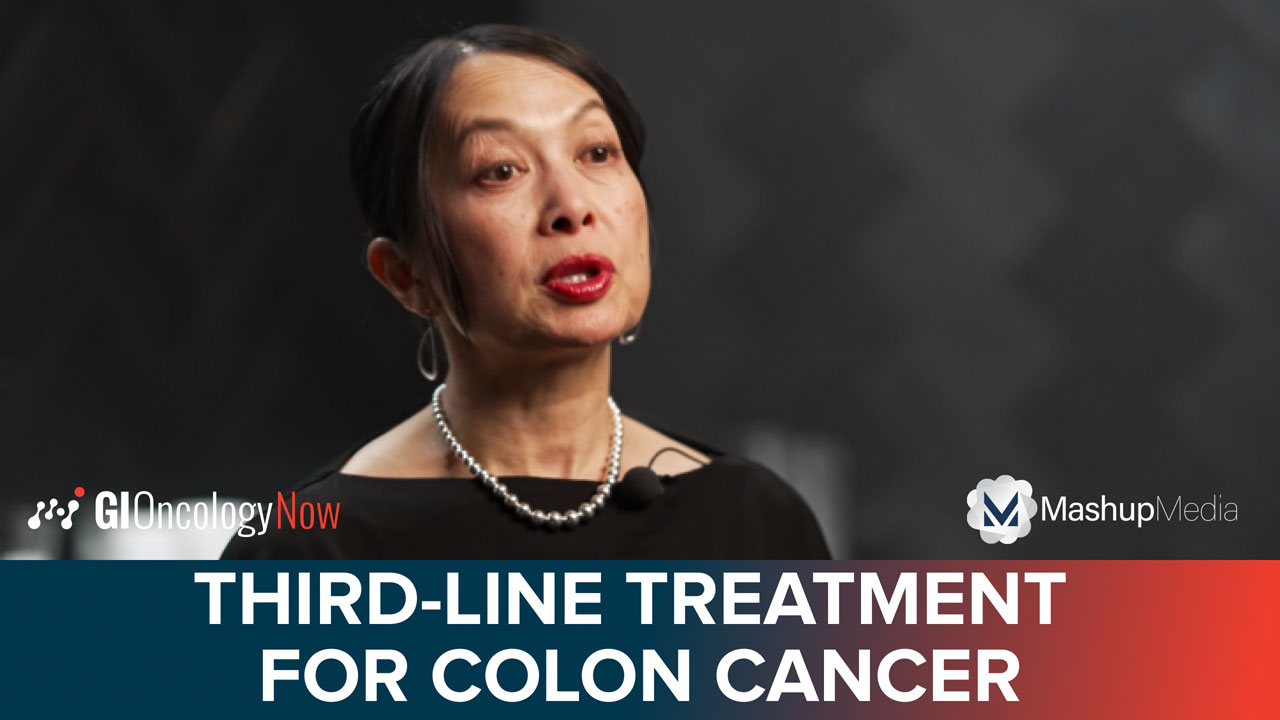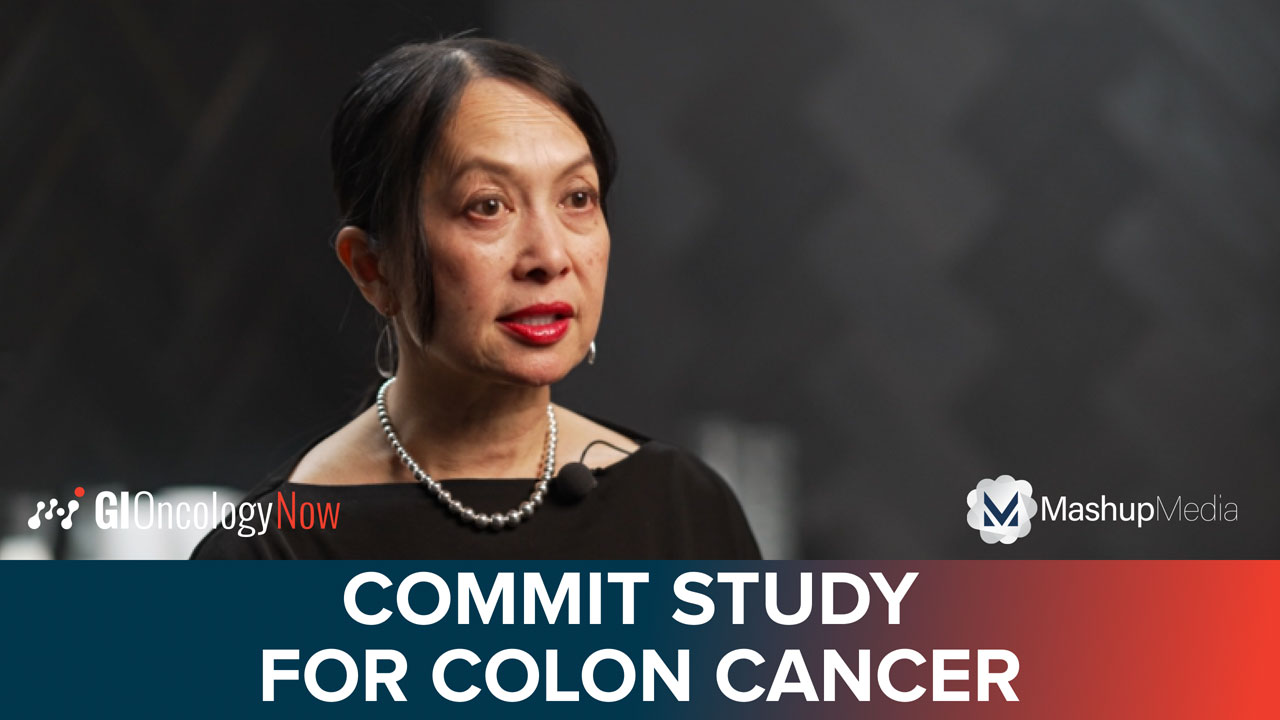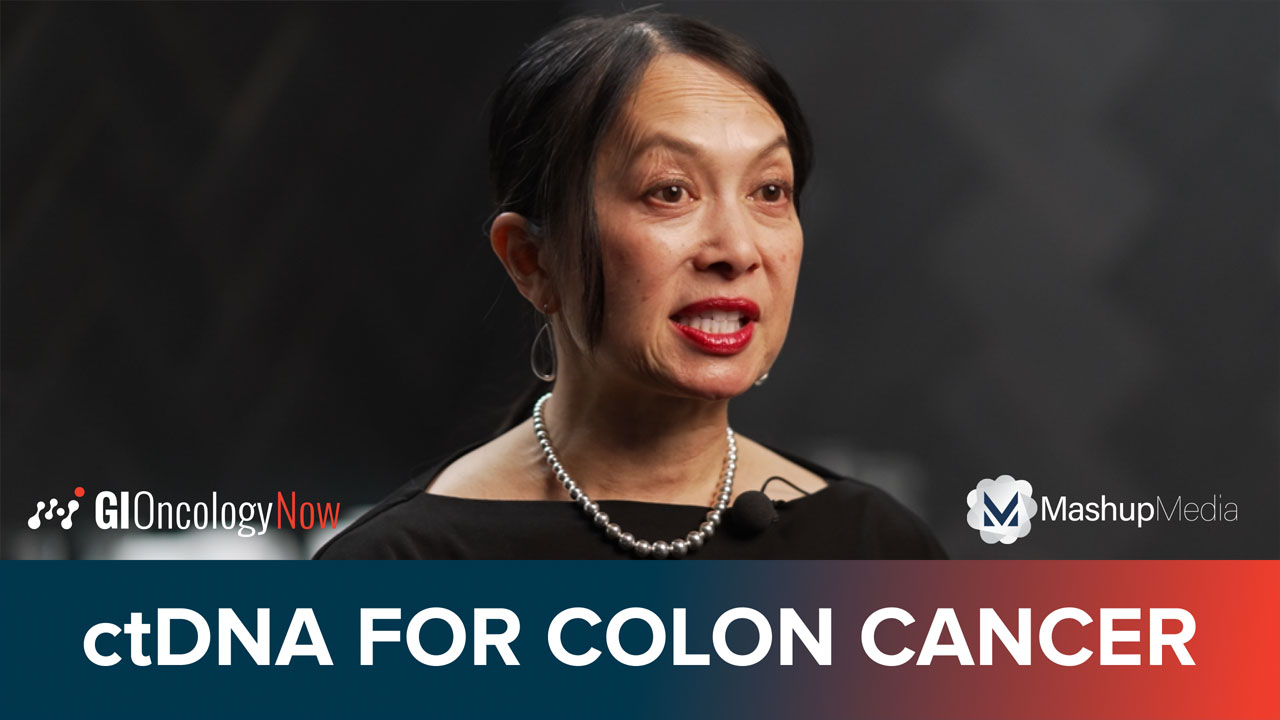
In the second panel of the Advancements in Oncology event, held on Saturday, June 1, The Oncology Brothers, Rahul Gosain, MD, MBA, and Rohit Gosain, MD, sat down with Cathy Eng, MD, FACP, FASCO, of Vanderbilt-Ingram Cancer Center, to discuss gastrointestinal cancer-related data from the 2024 American Society of Clinical Oncology Annual Meeting.
Dr. Eng first shared her expertise on the current approaches to treating colon cancer, focusing on the use of circulating tumor DNA (ctDNA) and its implications in both early and metastatic disease stages.
Utilizing ctDNA in Colon Cancer Treatment
Dr. Eng explained that in her clinic, ctDNA is used selectively, especially for patients who have undergone metastatic resection. It serves as an additional tool alongside carcinoembryonic antigen (CEA), diagnostic imaging, and symptom evaluation to inform treatment decisions. While she tries to limit its off-protocol use, many patients come into the clinic and advocate for it.
“We utilize ctDNA sequentially,” Dr. Eng said. “The GALAXY study has shown that ctDNA dynamics can potentially impact outcomes, though we are still understanding its full implications. For example, whether ctDNA becomes positive or negative with chemotherapy can influence disease-free survival or progression-free survival.”
Challenges in the Metastatic Setting
One of the significant challenges in the metastatic setting, she detailed, is dealing with cases where ctDNA is positive but CEA levels are low and scans show no evidence of disease. This scenario can cause considerable anxiety for both patients and clinicians.
Dr. Eng acknowledged this common issue, emphasizing that ctDNA is an additional tool rather than a definitive one. Its effectiveness varies based on tumor burden and metastasis location, with liver metastases shedding more ctDNA than lung or peritoneal metastases.
“As we better understand ctDNA, we hope to use it more wisely and help patients feel more confident about their treatment plans,” Dr. Eng stated.
Current Landscape of Stage IV Colon Cancer
In the context of stage IV colon cancer, Dr. Eng stressed the importance of identifying microsatellite instability (MSI)-high status, BRAF mutations, and HER2. Recent developments, particularly in immunotherapy combinations, are promising, she added.
“The KEYNOTE-177 trial was pivotal in getting pembrolizumab approved for previously untreated MSI-high patients, showing improved progression-free survival,” she explained. “We are now looking at the CheckMate-8HW trial, which compares nivolumab, nivolumab plus ipilimumab, and chemotherapy. Early results suggest better outcomes than standard chemotherapy, but we are awaiting further data to see if the combination of nivolumab plus ipilimumab is superior to nivolumab alone.”
Combining Immunotherapy and Chemotherapy
Dr. Eng also stressed the potential for combining immunotherapy and chemotherapy, particularly for young MSI-high patients. The COMMIT trial—investigating the combination of FOLFOX, bevacizumab, and atezolizumab—could provide valuable insights into whether this combination offers better outcomes than single-agent treatment.
Approaching Limited Metastatic Disease
For cases of limited metastatic disease, particularly liver metastases, a multidisciplinary discussion is crucial. Here, Dr. Eng highlighted the COLLISION study, which is examining whether thermal ablation is equivalent to surgical resection for small liver metastases. Patients are categorized by tumor burden and must have stable disease after systemic chemotherapy to be eligible. Results from this study will be vital in guiding treatment decisions.
Quality-of-Life Considerations
Quality of life (QOL) and patient preferences play significant roles in treatment decisions, and factors such as time away from work, financial toxicity, and proximity to treatment centers are critical. Dr. Eng emphasized that if radiation proves to be as effective as surgery, it could allow patients to receive treatment closer to home, significantly improving their QOL.
“This is especially important for the increasing number of young patients with colorectal cancer, who need to balance treatment with their personal and professional lives,” she noted.
View the next segment of this session: Targeted Colon Cancer Therapy: Dr. Cathy Eng on the Promise of KRAS G12C Inhibitors, Comprehensive Genetic Testing.







 © 2025 Mashup Media, LLC, a Formedics Property. All Rights Reserved.
© 2025 Mashup Media, LLC, a Formedics Property. All Rights Reserved.